Creating my zine/book about The London Rollerskating Scene Posted On 27th August 2024 To Magazine & Stories

Winning The Competition
I was in Oracabessa, Jamaica when I won this competition. My rollerskating community back in London was spreading the word far and wide about this vote at skate rinks and events, and amongst their family members and colleagues. I virtually reached out to nearly every person I’d ever met, asking them to help me win ILFORD'S Community Grant of £500 worth of film and equipment. That experience really showed me the power of community. Ever since then, I’ve been making this project for my fellow skaters, always keeping in mind the lengths they went to to help my project win the funding it needed.
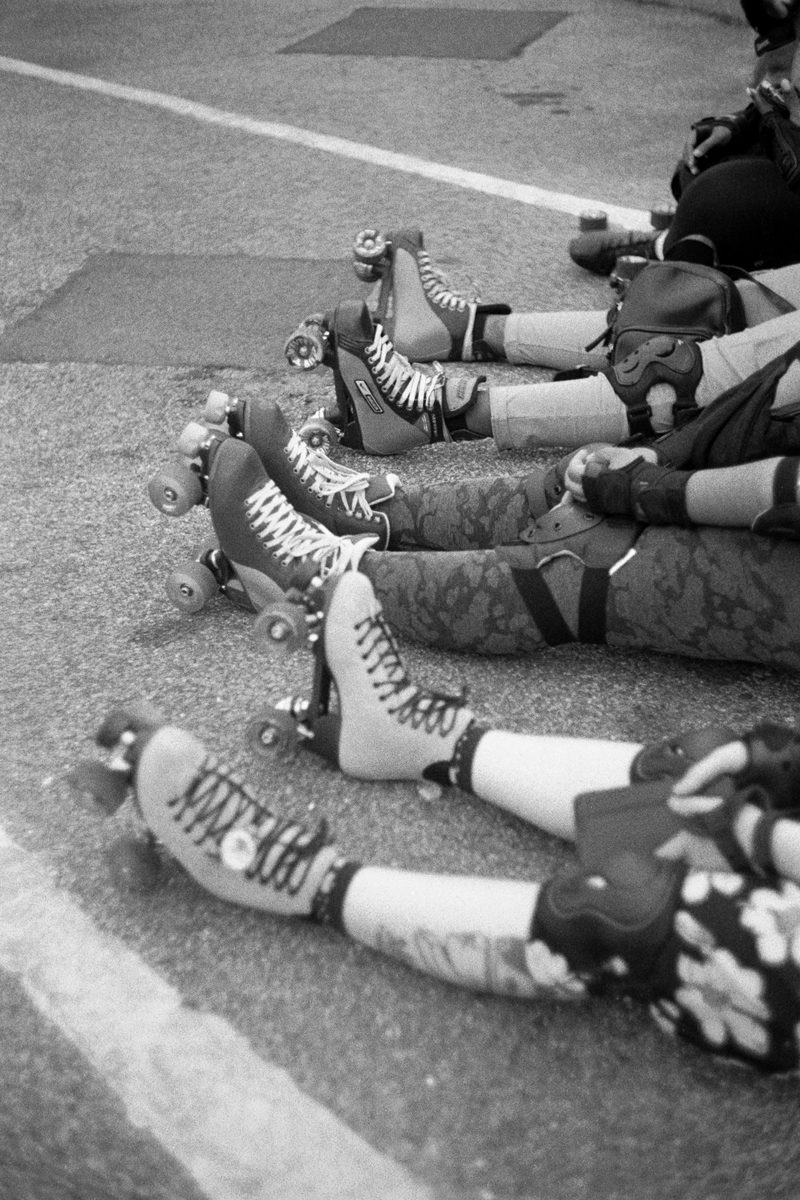
Starting With No Thoughts, Just Vibes
The very same day my husband and I returned to London, I started shooting for my project. Jam Speed Rollers hosted a skate event in a school hall and I took photos using my Nikon EM with its iconic Nikkor E Series 50mm lens, trying to figure out if I should use manual or TTL flash. A lot of skate events are really dark or unevenly lit and I soon figured out that my Nikon flash was not powerful enough to allow me to zone focus and shoot at f/8. Opening up the aperture too much would prevent me from getting shots in focus, as I had to shoot almost unthinkingly at times just to capture very fleeting moments as skaters spun and dropped and sped up and dipped and moved in sync with each other. So many moments really did fleet! I love to beat myself up thinking of how many incredible stills I couldn’t quite preserve on film, but that is the nature of analogue photography. It’s just me and my 36 frames, depending on how prepared I was that day, and whether or not I packed a spare roll.
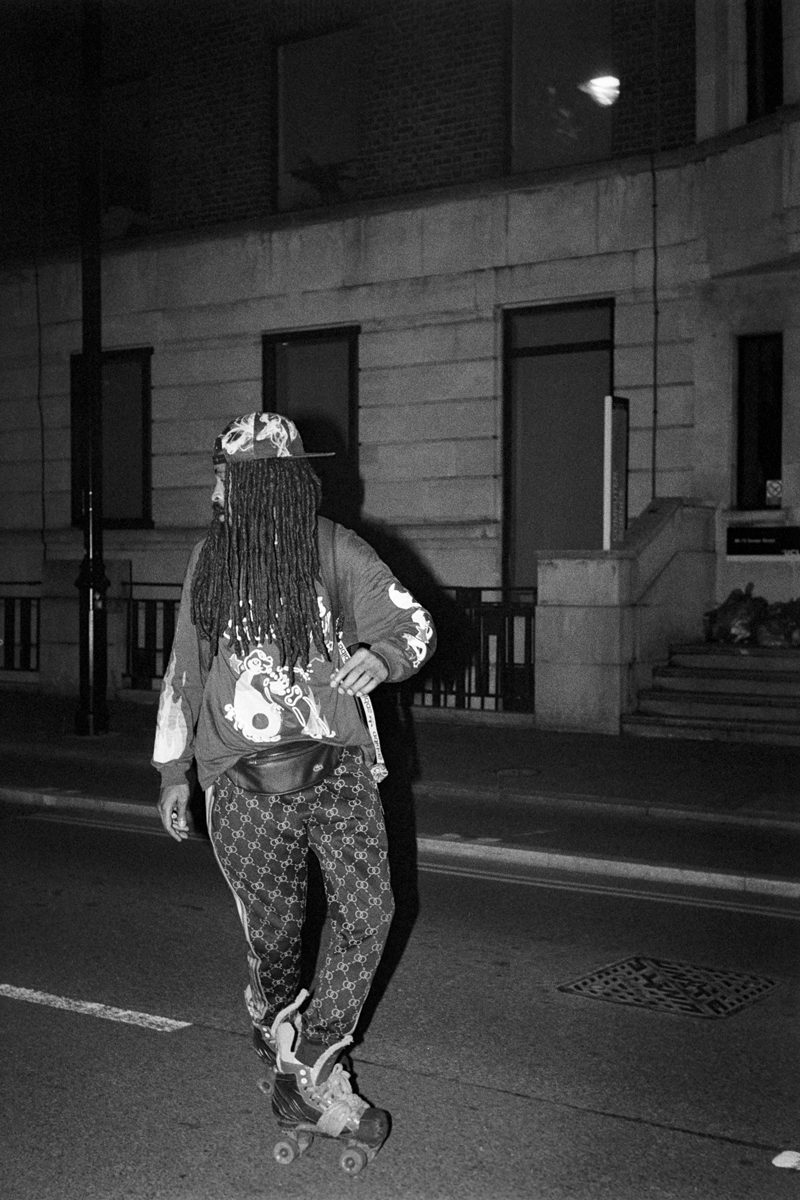
My ILFORD Swag
I decided that my Canonet QL19 GIII with its hefty and powerful flash would be the best camera for photographing in skate rinks like Flippers and Rollernation and nighttime BoNana street skates through central London. I’m often shooting at night and figuring out the right flash exposure was one of the key things I had to learn to get the right kind of high energy, snapshot photos for this project. I paired my Canonet, Nikon, a Canon EOS 650 and my Ricoh GR1V with a few different kinds of 35mm film that I requested from ILFORD:
The rest of my grant money was spent on a popup darkroom (I call it my TARDIS), Ilfotec DD-X developer, Ilfostop Stop Bath, Rapid Fixer and Ilfotol Wetting Agent. I ended up needing to buy more developer and a starter darkroom kit with spools, a thermometer and developing tanks but apart from that, everything else I received from ILFORD has been sufficient for this project.
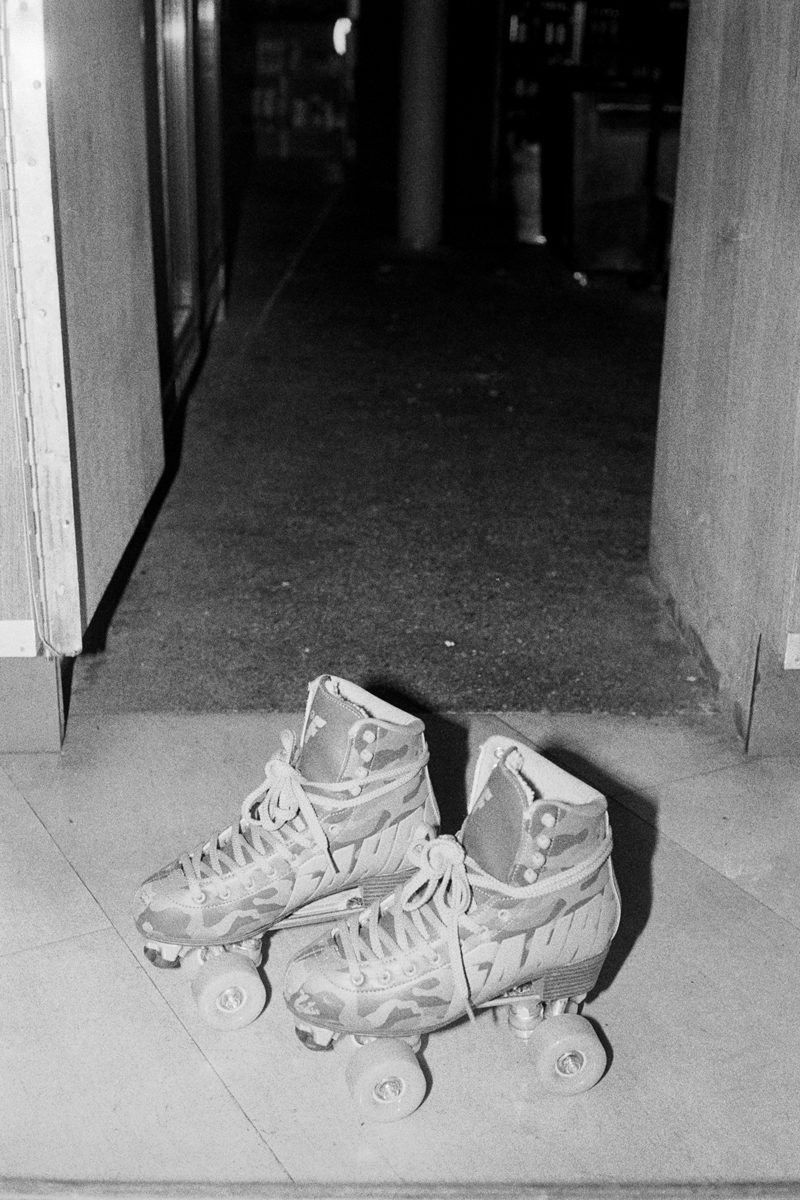
The Thrills and Terrors of Developing Your Own Film
I used to be a Darkroom Manager at the University of Warwick (while I was studying History) and had only briefly gotten to use London College of Communication’s darkroom as a Postgraduate student there, studying Photojournalism and Documentary Photography. Now, with the TARDIS and dangerous chemicals in my kitchen (it’s best my mum doesn’t know about this), I develop black and white negatives at home, which is such an amazing feeling.
It’s a ritual. All of film photography is a ritual. Loading the camera, testing to make sure you’ve done that properly, winding the lever, hearing the sound of the shutter, finally getting to frame no.36, unwinding it, storing the film for weeks while you wait until you have enough rolls to process on the same day, setting up the HUGE popup darkroom, letting your eyes get used to the absolute darkness, carefully winding the film onto the spool, making sure the tank is squeezed tight before you come out blinking into the daylight and then measuring and mixing chemicals, shaking and waiting and making sure you keep some chemicals, discard the rest, washing and washing and washing again and then FINALLY the moment of truth comes and thank god you haven’t messed it up. Your photos shot weeks and months ago are right there on the negative. Always such a incredible feeling to see a familiar face on that strange translucent purple material.
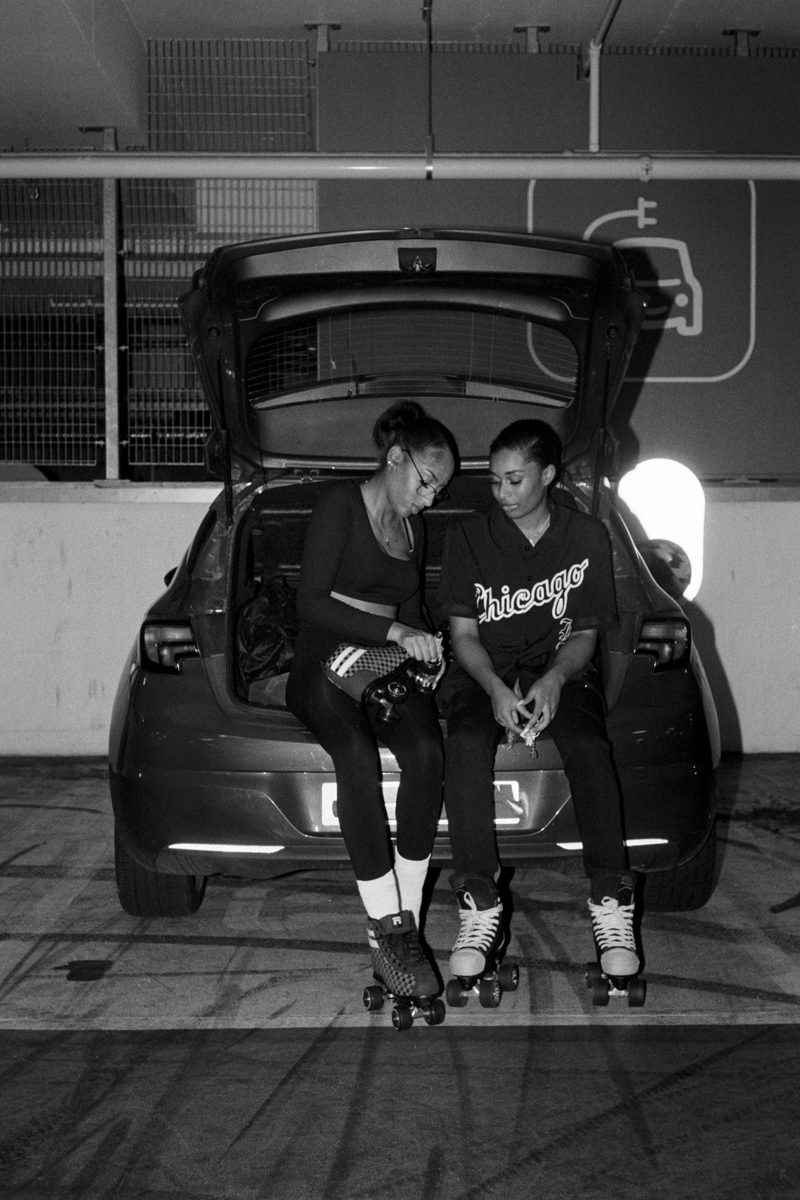
The terrors and the horrors of making mistakes in the field and at home
I made many mistakes in my development process
- I re-used the developer once and quickly realised why you are meant to throw it out (it’s just not as effective the second time round and the negative was underdeveloped as a result). I kicked myself for being frugal and didn’t do it again, though it always hurts me to just chuck the developer away!
- I accidentally mixed too much water with my developer once and that also led to underdeveloped film.
- I battled against water marks on the drying negatives each and every time.
- Dust, perennial dust!
Then there were all the mistakes made while shooting and skating at the same time
- I dropped a camera and it briefly stopped working (so did my heart).
- The Delta 3200 wasn’t my favourite. Some film and camera combinations just didn’t please me.
- I was trying to get amazing shots with my 28mm lenses but it’s just not my focal length and I need to accept it. I’m stuck with nifty fifty forever, it seems.
- While trying to unwind a completed roll of film inside the Canonet, the film snapped inside the camera, meaning I couldn’t take any more photos that night.
I panicked, thinking I’d have to send the camera off to a specialist to get them to safely remove the film and then realised wait I OWN A DARKROOM! Meaning I could go home, get in my pitch black tent in the living room, remove the film with my own two hands and get it safely onto a spool and into the developing tank. That was a big moment for me.
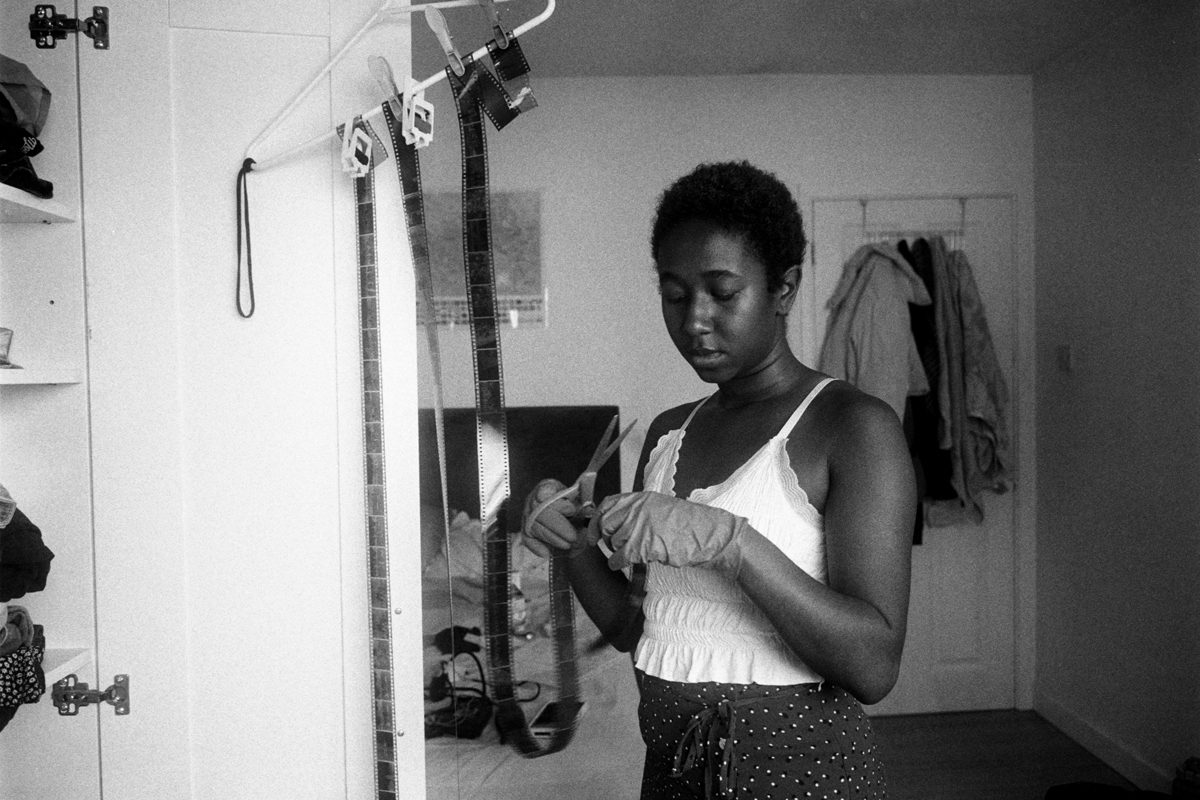
My shooting process
Despite my many, many mistakes, I still made huge strides over the course of a year. I photographed as many skaters, skates and skate events as possible, all on ILFORD film with my analogue cameras. I overcame fears about doing insane street skates through central London while zone focusing, getting the flash just right and photographing the insane scenes around me.
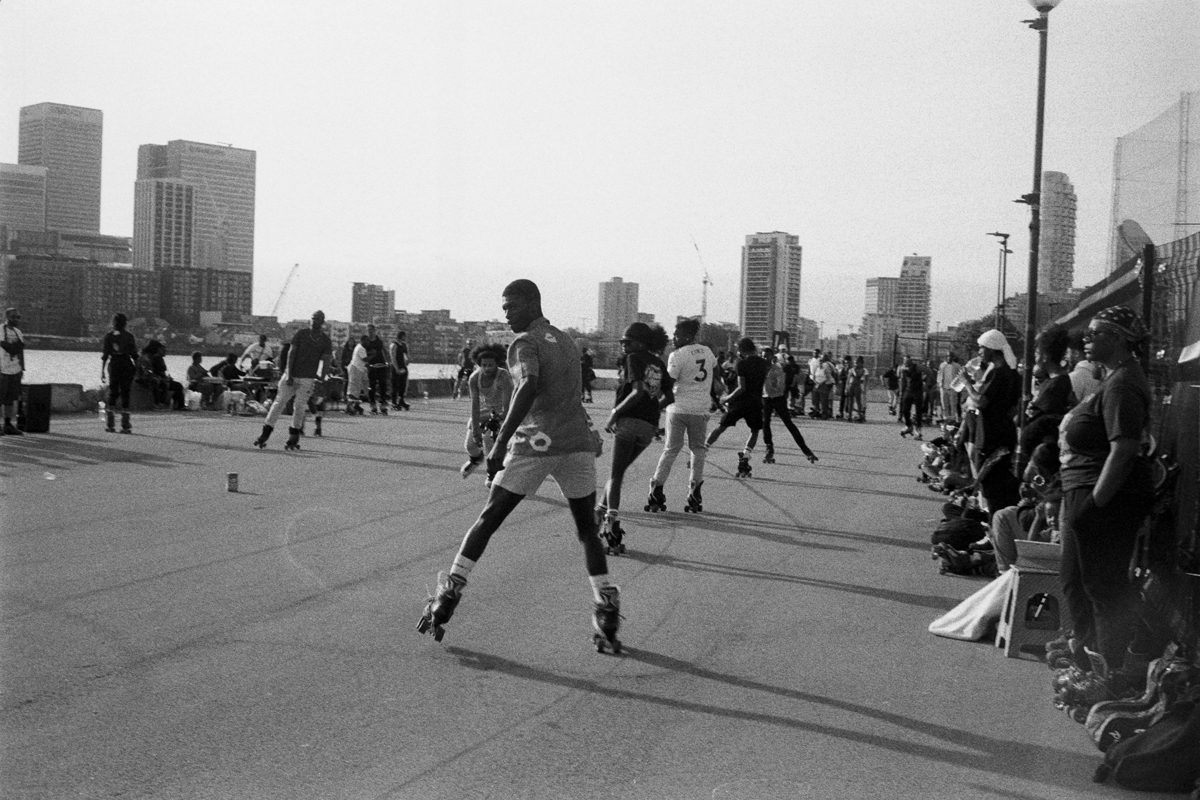
As I became a more confident skater (I’m only two years into my skate journey), I was able to take better photos, mid-motion, no stopping, just skating and shooting. My plan was: shoot now, think later. I took a lot of candid shots, I hate to interrupt people when they’re in the zone. I’m also scared of what the young teenage skaters will say when I ask to photograph them and I don’t know why! I just feel old and annoying. But I slowly became more confident in asking people for posed photos. I started focusing more on smaller details, on incorporating motion into the images and using different lenses to show more or less of a scene. Thinking more, shooting less. I tried not to look for inspiration in other photographers’ work too much, which only makes me feel inferior most of the time. I just wanted to shoot from the heart and convey love and appreciation.
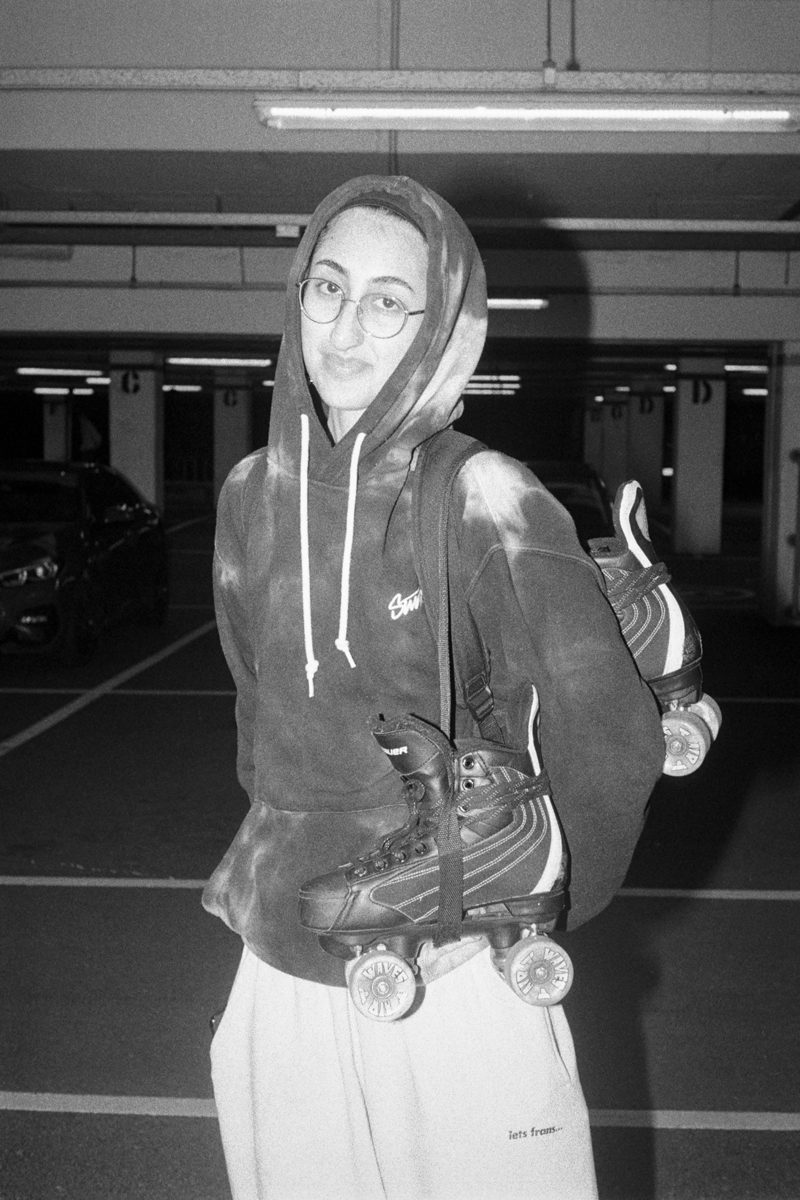
The very long editing and compiling process
I photographed, processed film and scanned negatives using my Plustek scanner for nearly 8 months. The scanning alone has been insanely time-consuming. For the last 4 months I have been organising over 1000 images into folders based on location and whether or not I want to use them. I’ve also been editing photos in Lightroom. No printing for me, I don’t enjoy that process enough to spend more money and time on that.
I’ve printed out hundreds of images and made cuts with a discerning photographer friend. I am going to stick them all in a notebook and imagine what I want my book/zine to look like. That’s how I want this project to manifest. I want to sell my gorgeous, printed zine(/book!) to skaters and artists and exhibit the work at a skate night. It’s only right. I don’t know how I’ll find the funding or work out the logistics or even have time for any of this alongside my day job, but I simply must it make it work. I’m going all the way with this project. I’m still working on the story but one thing about me, once I start writing and storytelling, the words just flow. Working out how to combine my words with my photographs in a way which showcases the depth of talent and passion in the London rollerskating community is the next stage in this journey. Wish me luck!
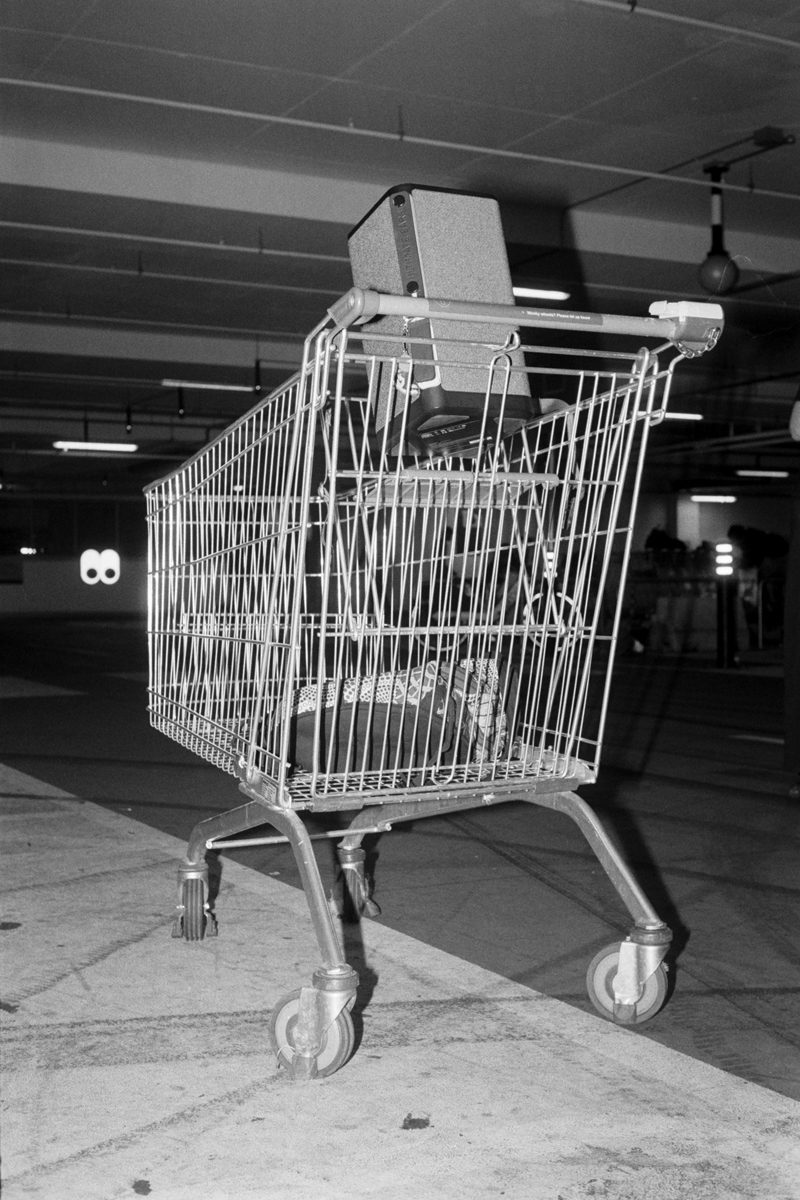
Images ©India Mae Alby
About The Author

India Mae Alby
My photographic practice focuses on community, diasporic and British Blackness and my love/hate relationship with London. The rollerskating scene encompasses all of this.
What I create is shaped by my background as a student of History and Photojournalism and Documentary Photography, my enduring obsession with 35mm film and my adventures across the world. Photography and writing about my photographs is how I preserve my memories and communicate them to other people.
@indiamaealby on Instagram






